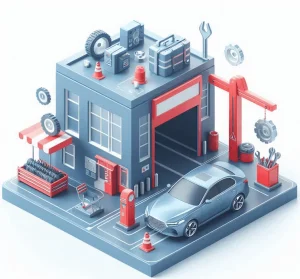Table of Contents
Electric Vehicles In the ever-evolving landscape of the automotive industry, Electric Vehicles (EVs) have emerged as a disruptive force, heralding a new era of transportation. With their sustainable approach and innovative technology, EVs are not just changing the way we drive but also reshaping the entire automotive ecosystem.

The Rise of Electric Vehicles
Electric Vehicles have gained significant traction in recent years, fueled by growing environmental concerns and advancements in battery technology. These vehicles, powered by electricity stored in rechargeable batteries, offer a cleaner and more efficient alternative to traditional internal combustion engine vehicles.
Sustainable Mobility Solutions
One of the key drivers behind the surge in Electric Vehicle adoption is the increasing emphasis on sustainability. As concerns over climate change and air pollution mount, governments, businesses, and consumers are turning to EVs as a sustainable mobility solution. By reducing reliance on fossil fuels and minimizing greenhouse gas emissions, Electric Vehicles play a crucial role in combating environmental degradation.
Technological Advancements
The rapid advancements in battery technology have been instrumental in making Electric Vehicles more practical and appealing to consumers. Lithium-ion batteries, with their high energy density and longer lifespan, have significantly extended the range of EVs and reduced charging times. Moreover, ongoing research and development efforts are focused on enhancing battery performance and affordability, further driving the adoption of electric vehicles.
Driving Innovation
The Electric Vehicle revolution has sparked a wave of innovation across the automotive industry. Traditional automakers, as well as startups, are investing heavily in electric vehicle technology, leading to the development of cutting-edge features and functionalities. From autonomous driving capabilities to advanced infotainment systems, EVs are pushing the boundaries of what’s possible on the road.
Infrastructure Challenges
While the adoption of Electric Vehicles is on the rise, challenges remain, particularly regarding infrastructure. The establishment of a robust charging infrastructure is essential to support the widespread adoption of EVs. Governments and private sector players are working together to expand the charging network, including fast-charging stations along highways and in urban areas, to address range anxiety and encourage more drivers to switch to electric.
Economic Implications
The shift towards Electric Vehicles has profound economic implications, affecting various stakeholders in the automotive industry. Traditional automakers are reallocating resources to develop electric vehicle models, while suppliers are adapting to meet the demand for electric drivetrain components and battery systems. Additionally, the rise of electric mobility has led to new business models and revenue streams, such as electric vehicle charging infrastructure services and energy storage solutions.
Policy Support
Government policies and regulations play a crucial role in shaping the trajectory of Electric Vehicles. Incentives such as tax credits, rebates, and subsidies are often offered to encourage consumers to purchase electric vehicles and stimulate market growth. Moreover, regulations aimed at reducing emissions and promoting clean transportation further drive the transition towards electric mobility.
Consumer Adoption
As Electric Vehicles become more accessible and affordable, consumer adoption is expected to accelerate. Factors such as lower operating costs, environmental consciousness, and technological innovation are driving consumers to choose electric vehicles over traditional gas-powered cars. Additionally, the expanding range of electric vehicle models and the availability of charging infrastructure are making EV ownership more convenient and practical for a broader range of consumers.
Collaboration and Partnerships
The transition to electric mobility requires collaboration and partnerships across various sectors. Automakers are partnering with technology companies, energy providers, and government agencies to develop integrated solutions that address the complex challenges associated with electric vehicle adoption. By leveraging each other’s expertise and resources, stakeholders are accelerating the transition towards a sustainable transportation future.
The Future of Mobility
In conclusion, Electric Vehicles are reshaping the automotive industry, driving towards a future characterized by sustainability, innovation, and collaboration. As technology continues to advance and infrastructure expands, electric mobility is poised to become the norm rather than the exception. By embracing electric vehicles, we can pave the way for a cleaner, greener, and more efficient transportation system for generations to come.
Electric Vehicles
In conclusion, the advent of Electric Vehicles marks a pivotal moment in the automotive industry’s evolution, heralding a shift towards sustainable mobility and innovative technology. With their environmental benefits, technological advancements, and potential economic implications, EVs are poised to reshape the way we think about transportation. While challenges such as infrastructure development and policy support remain, the momentum behind electric mobility continues to grow, driven by consumer demand, industry innovation, and collaborative efforts. As we look towards the future, Electric Vehicles are not just changing the way we drive; they are shaping a cleaner, greener, and more efficient transportation landscape for generations to come.






More Stories
Continuous Energy: Exploring the Convenience of Self Charging Electric Cars
How Electric Trucks Are Changing the Face of Commercial Vehicles
Tips for Efficient Electric Car Charging